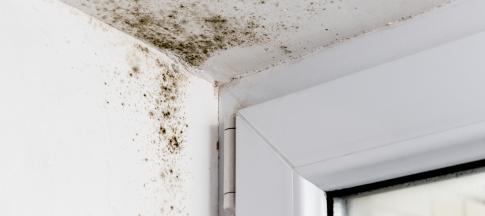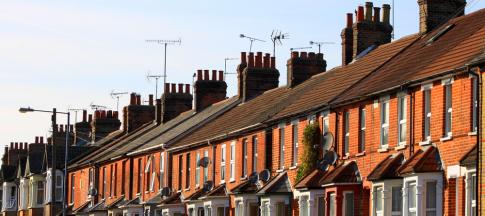
If you’re a tenant living in a rented home, making sure your home is free of black mould is important for you and your health.
While it’s your landlord’s responsibility to make sure your home doesn’t have any black mould growing, there are a few things you should know to understand what causes it and how you can stop it becoming a problem.
What causes black mould?
Black mould in the home is caused by warm temperatures and excess moisture.
It can be caused by leaks, condensation or poor ventilation in the property.
Something as simple as drying your clothes indoors can cause mould to grow as it creates condensation by releasing moisture into the air.
Who is responsible for black mould – tenants or landlords?
Your landlord is responsible for making sure black mould in your home is dealt with, especially if it’s caused by structural issues and not looking after the property.
As a landlord, they have a legal duty to make sure their property is safe for tenants to live in.
This includes making sure the property is in good shape and free of damp and mould issues. They have a duty to support you with understanding how you can reduce mould and dampness in your home too.
You can learn more about who’s responsible for what in a rental property.
Telling your landlord about black mould in your home
You should tell your landlord straight away if you find black mould in your home.
Your landlord can only help resolve the issue if they’re made aware of it, so let them know as soon as possible.
While there isn’t a legal time for when a landlord should reply by, ideally, they should respond to the issues within a reasonable timeframe to avoid it becoming a bigger problem.
What are the health effects of black mould?
Black mould in the home can cause different health problems, for instance:
- You might have an allergic reaction to the growing mould
- Respiratory issues, causing you to cough, wheeze or have shortness of breath
How to get rid of black mould
If you spot signs of black mould in your home, the first thing you should do is let your landlord know. Once they’re aware of the problem, they can help fix it.
Your landlord will need to identify what’s causing the black mould.
They’ll need to check for:
- leaks
- poor ventilation
- condensation
Once they know where the mould is growing, they’ll be able to understand how to tackle the problem.
How to get rid of black mould on walls
To get rid of black mould on walls, you can use a cleaning solution, which is made up from one part bleach with four parts of water.
Spray this on the area and leave it for a few minutes.
Scrub with a brush to remove the mould and leave it to dry completely.
You can try doing this yourself, but if the mould comes back, your landlord will need to investigate and deal with the issue professionally.
How to get rid of black mould on ceiling
Black mould on the ceiling is usually caused by poor ventilation.
You can remove it by spraying white vinegar, bleach or baking soda on the affected area.
Leave it to work for 10-15 minutes before scrubbing the mould away with a brush.
How to get rid of black mould in the shower
Again, black mould in the shower is usually caused by poor ventilation, meaning there’s nowhere for excess moisture to escape.
You can remove it in the same way by spraying with a diluted white vinegar or bleach solution and leaving it to work for a little while.
Then, use a cleaning cloth to remove the mould.
How to prevent black mould in your rented home
Your landlord should make sure the walls and windows are insulated properly to help prevent black mould from growing in your home.
There are some things you can do to help prevent black mould like:
- making sure you clean your home regularly
- drying your clothes outside or using a dryer
- getting a dehumidifier
You can find out more about some of the things you can do to stop mould from growing in our article on how to prevent mould in your home.
How to protect your belongings with renters' insurance
Black mould is classed as wear and tear because it gradually grows over time, so it’s typically not covered as part of your renters’ insurance.
However, you can get insurance to protect your belongings if they are damaged and you live in a rented property.
Find out more about renters’ insurance and what you’re covered for.


